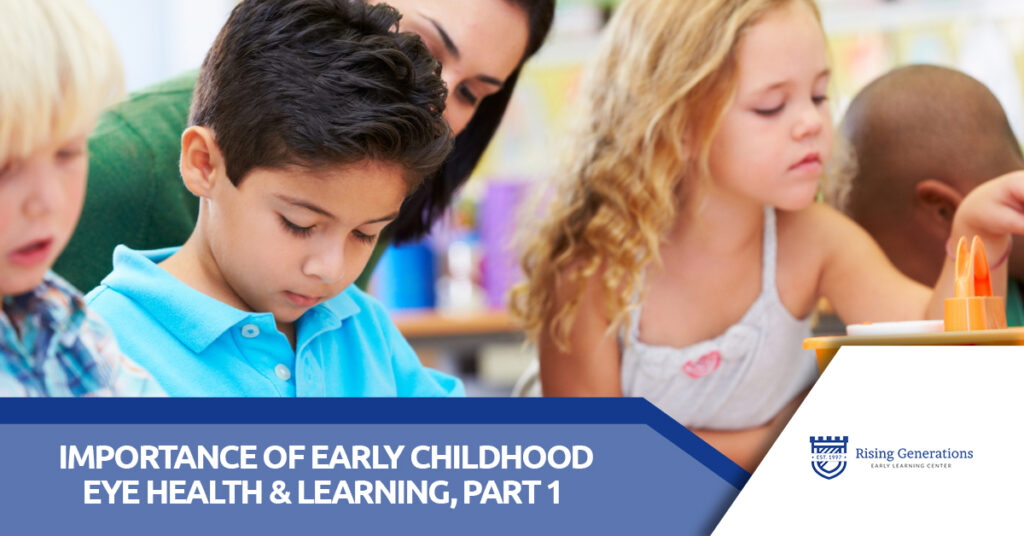Hello, and welcome back to the Rising Generations blog! In our recent blog posts, we looked at some of the reasons why preschool programs are a great start to learning, which you can view by clicking here. Keeping with this theme, we would like to look at the importance of healthy eyes and vision during your child’s early development, and how it affects their learning into adulthood. One of the best things about early learning programs like ours here in the Lanham-Bowie area is that toddlers are introduced to the basics of learning: Reading, writing, critical thinking, and asking questions. Because these small scholars are engaging in these activities using their vision, as well as other sensory perceptions, it’s important for parents to take a proactive approach to encouraging good eye health and vision wellness. As children progress in school, they will continue facing demands on their vision abilities by reading, writing, and using electronic devices in their education. Today, we would like to explore some of the ways parents can help maintain their child’s vision health early on to help deter vision issues down the road which may affect their learning in school.
Maintain Regular Eye Exams
Healthy vision is more than just having 20/20 vision. Visual perception is also about having the ability to make sense of and respond to what is seen, which is a key aspect of learning for students of all ages. According to the American Optometric Association (AOA), vision skills such as recognition, comprehension, and retention are needed for a child to have success in school. Eye problems can begin at birth, but may not fully manifest until later.
- Recognition: Therefore, it is important for parents to keep up with their children’s routine eye exams so that their child can recognize the difference between letters like “b” and “d” or “g” and “q.”
- Comprehension: Healthy vision is also important for comprehension, which is a child’s ability to picture or imagine something they are reading or hearing.
- Retention: Additionally, retention, or the ability to remember and recall details about what we read and write, is crucial to learning.
The AOA recommends that babies up to 24 months old have their eyes examined at six months, and toddlers aged two to five years old have their eyes checked at the age of three. Depending on what the eye specialist finds, he or she may recommend routine checkups every year or more frequently. For those parents enrolling your tiny students into daycare and preschool programs with us, it’s best to have their eyes examined for optimal learning.
For those tiny minds who are enrolled in our preschool programs and other early learning programs here at Rising Generations, we want them to tap into their full learning abilities so they can begin excelling in school at an early age. Addressing a child’s eye and vision health early on is the key to successful learning that will remain an important aspect of their schooling and learning throughout their lives. We have just scratched the surface of the connection between healthy vision and learning today, so tune in next time as we continue exploring ways to improve and manage your toddler’s eye wellness.


